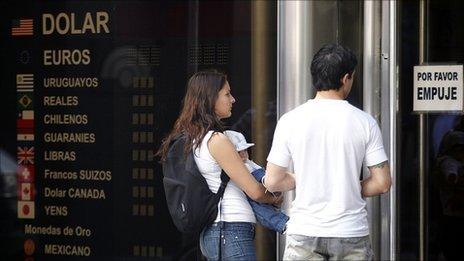Argentina's Cristina Fernandez faces testing times
- Published
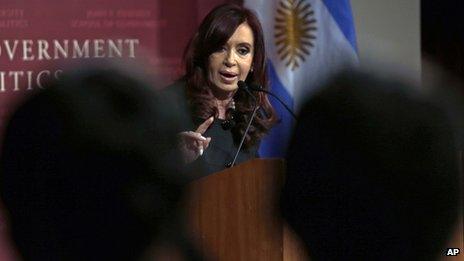
Cristina Fernandez de Kirchner won a second term in October 2011
"I deeply regret voting for Cristina," says Cecilia, a 30-year-old Argentine journalist.
A year ago Cecilia was a keen supporter of President Cristina Fernandez de Kirchner.
Twelve months on, her euphoria has turned into disappointment.
"This is not the government I voted for. I don't think it's been beneficial for the country," she says.
But in a sign of the polarised views of Ms Fernandez, architect Cristian Groppo, 30, is quick to defend the president.
"Those complaining in Argentina aren't the lower classes, but the wealthy, empowered by the mainstream media," he says.
President Fernandez won a second term on 23 October 2011 with 54% of the votes.
Her campaign benefited from both a fragmented opposition and strong economic growth as the country continued its recovery from financial collapse in 2001 and 2002.
Cecilia, who preferred not to give her full name, says the country is now beset by sluggish growth and high inflation.
"There have been measures, like the restrictions on buying dollars, that have tried to keep the economy going, but instead I've seen a rise in unemployment and a loss in confidence," says Cecilia.
Mr Groppo points to how wages are increased in line with inflation.
"In addition, there has been substantial investment in infrastructure," he says.
President Fernandez is still seen as having a strong core support. Opinion polls suggest that if an election were held tomorrow, (theoretically, as a third consecutive term is banned), she would win.
"Shortly after re-election, the president's approval was over 70%," says Eduardo Fidenza, director of Argentine opinion poll firm Poliarquia.
He says his firm's numbers show that this has dropped to 40%.
While Mr Fidenza points out that 40% is not bad for a leader now in her sixth year in office, the growing public discontent was visible in mid-September when Argentina saw its biggest nationwide demonstrations for four years.
Thousands of people banged pots, chanted anti-government slogans and waved banners against the president's failure to combat crime and inflation.
Rising prices
The number of protesters took both opposition and government politicians by surprise.
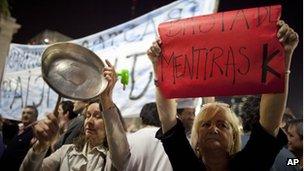
Pot-banging protests known as "cacerolazos" are a traditional way of venting anger
There were several years of strong economic growth under Ms Fernandez's late husband, Nestor Kirchner, and then the president herself, but this year the economy has slowed sharply.
Government officials blame the global financial crisis for Argentina's troubles - particularly the economic slowdown in Brazil, Argentina's main trading partner.
Officially, annual inflation is running at 10% but private economists put it at more than 20%, second only to Venezuela regionally.
But few dare to publish their findings after the government last year fined several consultants who issued data that contradicted the official figures, accusing them of "misrepresentation" and "confusing" the public.
Rising prices have hit middle class voters particularly hard.
"It is the middle classes who are the most vulnerable to inflation, as the lower income sectors' purchasing power is more protected by the government's social programmes," says Graciela Romer of Romer and Associates pollsters.
Since Ms Fernandez's re-election, the views of her supporters and critics have polarised, according to the polling companies.
"For the first time since she's been in power we see that the criticism levelled at the president is more directed to her as a person and less towards her policies," says Mr Martinez of polling firm Isonomia.
A recent poll by his firm found that 32% were concerned by Ms Fernandez's perceived "arrogance".
There are mid-term legislative elections taking place in Argentina next year and analysts say much rests on whether official estimates of 4.4% growth in 2013 prove correct.
"Last year's re-election victory could be described as spectacular, but today Ms Fernandez leads a weaker government," says Mr Fidenza.
"However, as the opposition still lacks unity, it would not surprise me if the government won next year's mid-term elections, although with lower rates of support."
- Published1 December 2015
- Published25 September 2012
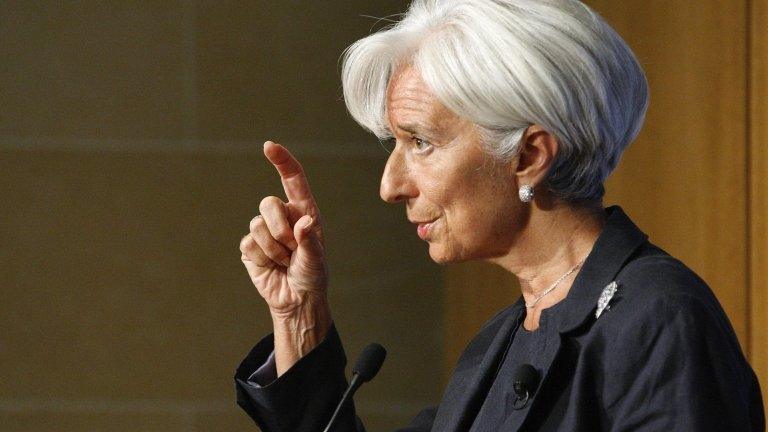
- Published4 October 2012
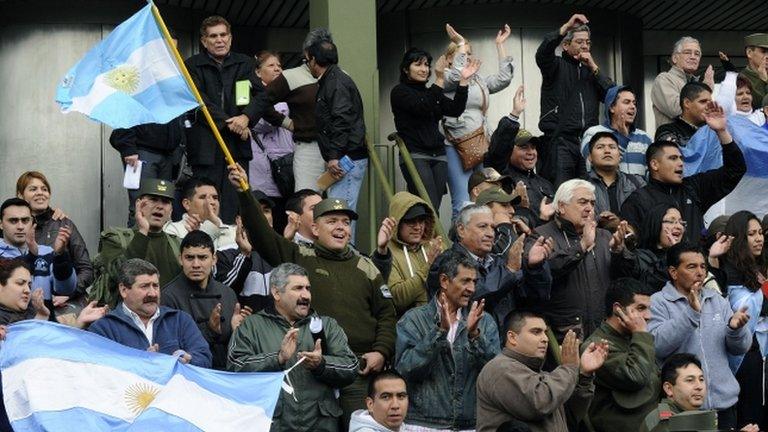
- Published28 June 2012
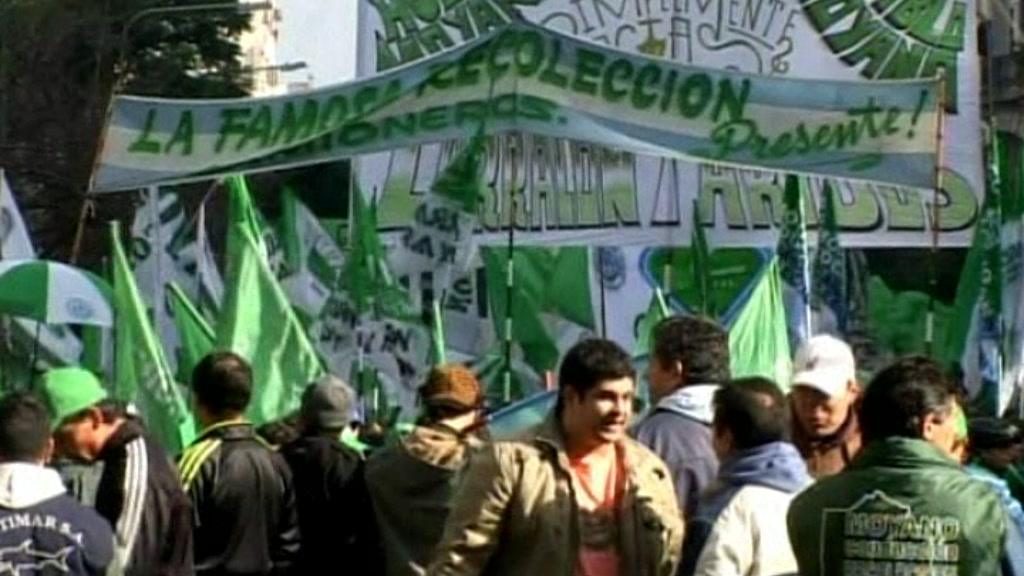
- Published1 November 2011
